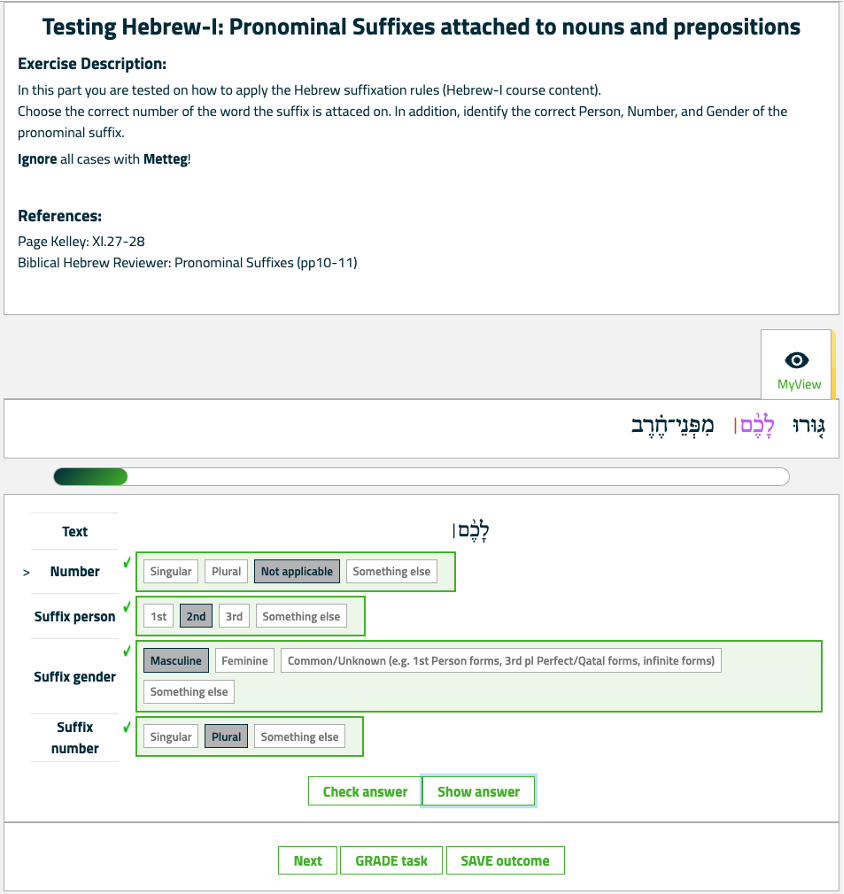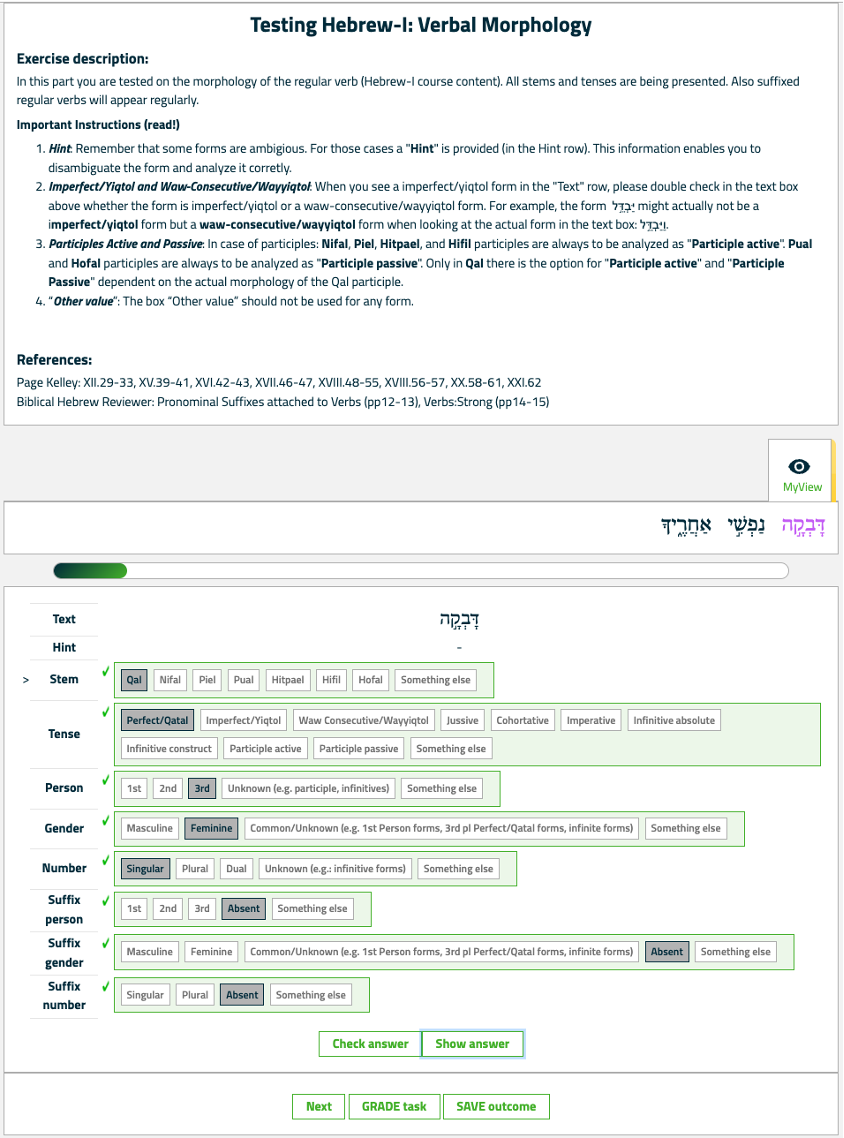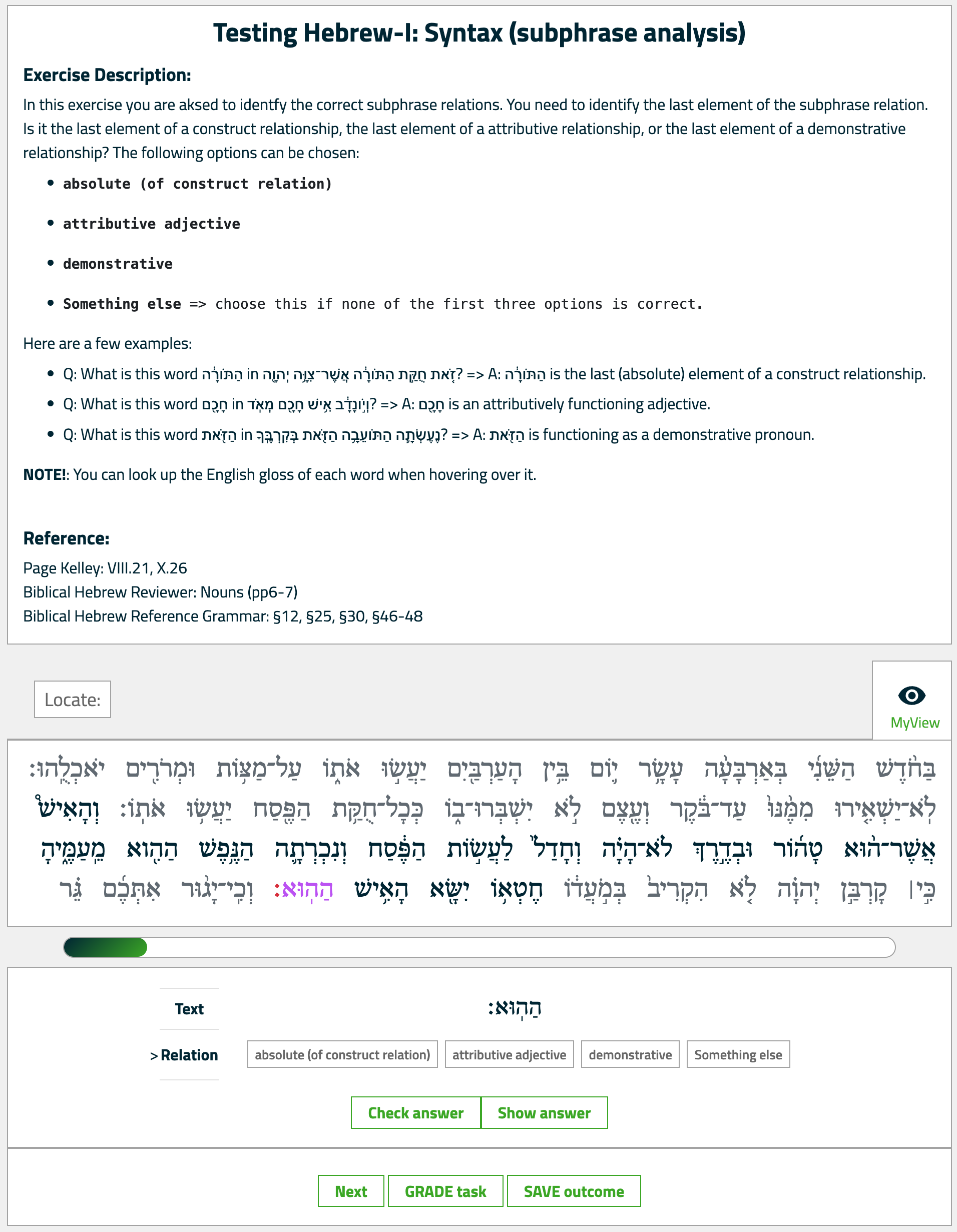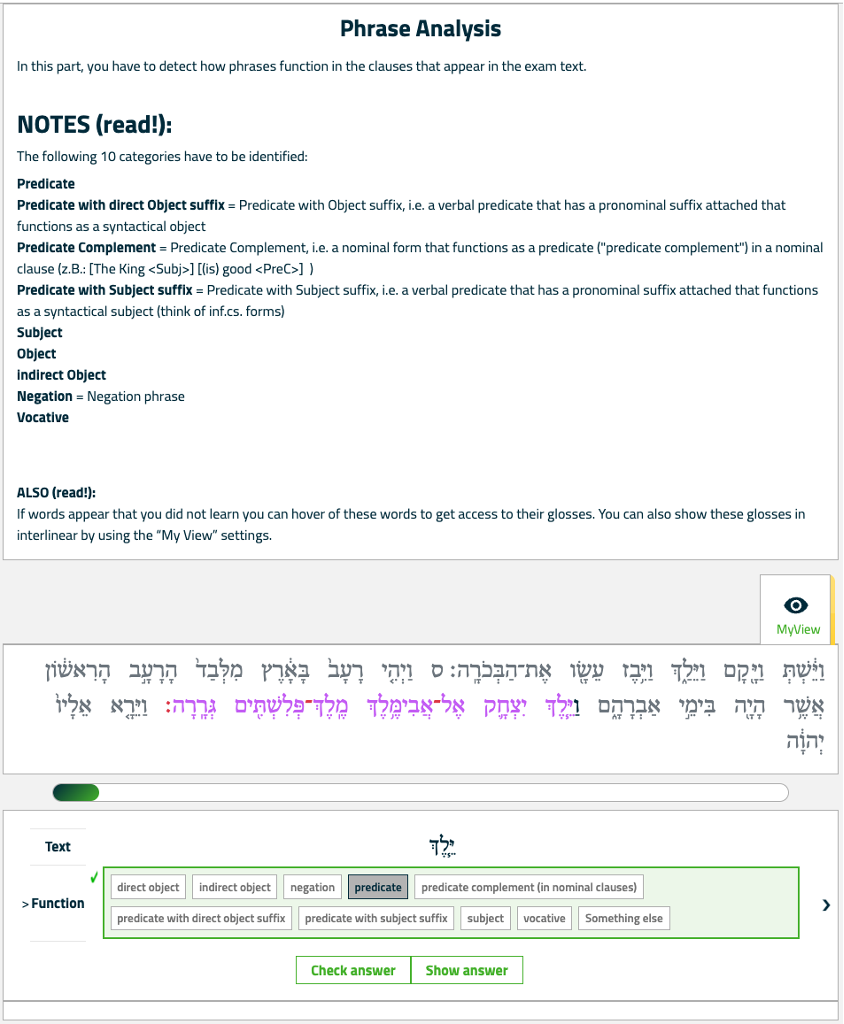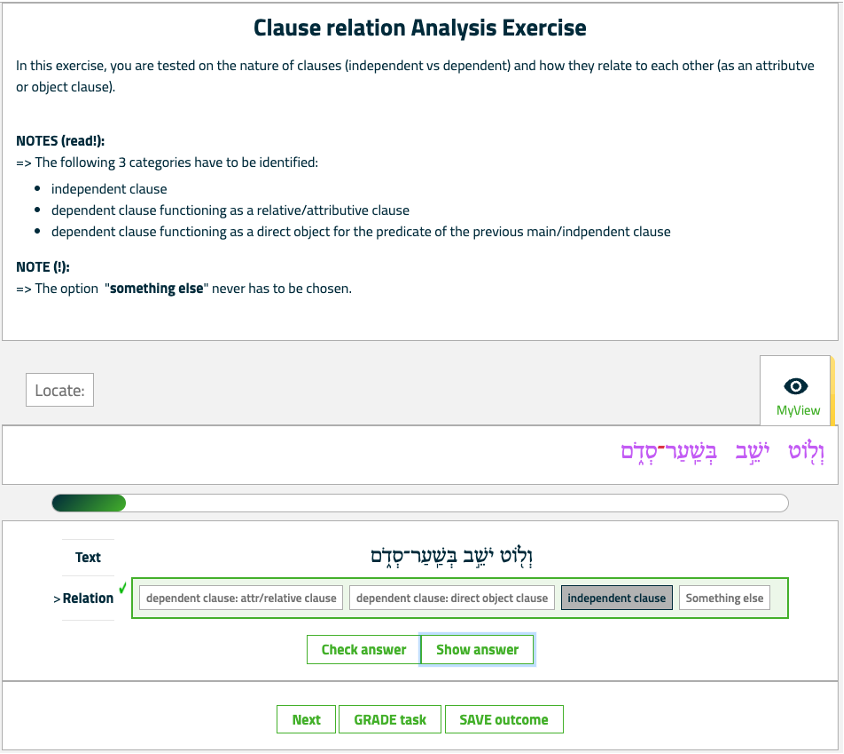Help pages
Example: First Hebrew exercise
Example: Second Hebrew exercise
Example: Third Hebrew exercise
Example: Second Greek exercise
Example: Create a simple Hebrew exercise
Example: Create an advanced Hebrew exercise
Example: Create a simple Greek exercise
Andrews University Final Exam: Hebrew I (OTST551)
Andrews University Final Exam: Hebrew II (OTST552)
Andrews University Final Exam: Advanced Hebrew (OTST625)
Andrews University Hebrew Placement Exam
Hebrew Proficiency Exam for OTST Exegesis classes
Andrews University Final Exam: Intermediate Greek (NTST552)
Andrews University Greek Placement Exam
The Hebrew I Final Exam
Required Skills
Andrews University requires from OTST551 students that the following material be mastered:
- The entire content of the Page Kelley textbook (chapter I – XXI).
- All vocab with an occurrence of 200 and higher.
- Basic syntax skills.
Required Materials
- Textbook: Any textbook that covers the materials found in Kelley, Page H., and Timothy G. Crawford. Biblical Hebrew: An Introductory Grammar. 2nd edition. Grand Rapids, Michigan: Eerdmans, 2018. Several professors use as an alternative Merwe, Christo H. van der, and Jacobus A. Naudé. A Biblical Hebrew Reference Grammar: 2nd Edition. London, New York: T&T Clark, 2017.
- Vocab Builder: The department requires the Biblical Hebrew Vocabulary Builder (soon to be published by AUP).
=> Oliver Glanz, and Tsegaw, Melak. Biblical Hebrew Vocabulary Builder: Analog and Digital, Alphabetic, and Illustrative, arranged by Frequency and Semantic Categories. Berrien Springs: Andrews University Press, 2025 (in process to be published). Until the publication, a simplified pdf version of this Hebrew vocab builder will be shared with all Hebrew instructors before the beginning of the semester. Students, wanting to prepare for a OTST551 Final Exam but are not currently enrolled in a class can download this complete vocabularly list (containing all OTST551 words) that matches the gloss database of the BibleOL. - Comprehensive Paradigms: The department approves and recommends Glanz, Oliver. Biblical Hebrew Reviewer: A Universal Study Companion. Berrien Springs: Andrews University Press, 2018.
- Document for Syntax Defintions: Download the Syntax Defintion Document here. All definitions are to be mastered and assumed in the exam.
The Exam for OTST551 students
The BibleOL-based Hebrew-I Final Exam contains the following elements:
- Vocabulary: Students will be asked 20 words. Students need to provide glosses they have learned as part of their vocab training. Students must use the AUP-based vocab builder to make sure their learned glosses match the ones in the BibleOL (a simplified pdf version will be provided until AUP has published its vocab builder).
- Morphology of Prefixing: Students must choose the right vowel+consonant combinations for prefixing prepositions and conjunctions to words. 10 words must be prefixed correctly.
- Morphology of Nouns: Students must analyze 10 nominal forms (covering all states, number, gender).
- Morphology of Suffixation: Students must analyze 5 suffixes (person, number, gender) attached to nominal forms or prepositions.
- Morphology of Verbs: Students must answer 16 regular verbal forms (covering all tenses, all stems, suffixed and non-suffixed forms).
- Subphrase analysis: Students must analyze 10 subphrase relations (is the word relation part of a construct relation, attributive-adjective relation, a demonstrative relation, or something else).
- Phrase analysis: Students must translate 10 clauses by identifying the phrase function of the different phrases in simple sentences. BibleOL will provide the meaning of unknown words if they do appear.
- Clause-relation analysis: Student must translate ~6 sentences by identifying clause relations (independent vs. dependent clause [relative clause, object clause]).
Students get access to each BibleOL-based exercise used in the final exam before taking the exam. Access will be given to them when they enroll in a Hebrew-I course. Consequently, students can exercise with these materials and get a realistic sense of the final exam before the actual exam day. If a student performs at a top level when doing the exercises, the student will know that she or he will perform well in the final exam. No surprises should be expected. This is because the data pool for the exam-prep exercises is identical to the actual exam.
The table below provides access to each part of the exam. Each exam part is hyperlinked (underlined, blue table headers) so that students can begin exam preparations.
| vocabulary | morphology: prefixing | morphology: nouns | morphology: suffixation | morphology: verbs | syntax: subphrase relations | syntax: phrase functions | syntax:clause relations |
|
|
|
|
|
|
|
|
|
How to take the Final Exam?
If you are presently enrolled in a Hebrew I (OTST551) class, you must take the following steps to get access to the Final Exam:
- Make sure you are enrolled in the correct class that your instructor is teaching. The class could look like this:
The following video shows how you can enroll in classes:
- Once you have enrolled you can see the Final Exam show up under “Exams”. The following video shows how you can find and take exams on the Bible OL:
- When you are finished taking your exam you can lookup your exam results instantly. The OT department will inform your instructor within a few days about your official final exam grade.



